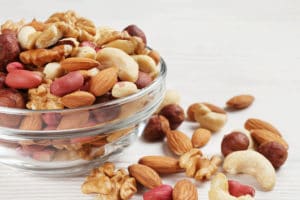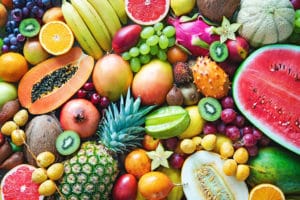Eating for Sleeping!
The benefits of a good nights’ sleep are well known and well documented. Anxious parents, nannies and maternity nurses work hard to find a good sleep pattern for children and as adults we are only too aware of how we feel if we don’t get enough sleep or have a restless night not sleeping properly.
One contributing factor to ‘restful’ and good quality sleep is our nutrition and in particular what we consume as pre-bedtime snacks & drinks.
You may not be aware that the one of the reasons you toss and turn all night is because your insides are restless too.
Here we take a look at some of the facts about which food and drink promote better sleep and which ones don’t!
Should Be Avoiding Before Bed: 
Cheese: it is a common myth that you shouldn’t eat cheese before bedtime, but it turns out that there is some truth and science behind it! Cheese contains an amino acid called tyramine which helps regulate blood pressure, but also encourages the brain to release norepinephrine – a neurotransmitter which acts as a stimulant, thereby promoting wakefulness! If it has to be cheese then opt for a softer variety such as cottage cheese which would be much better.
Fried Foods: fine for certain times of the day and in moderation as part of a balanced diet, but should be limited towards bedtime as too much saturated fat can interfere with the quality of your sleep.
Caffeine: probably best to avoid caffeine products 4-6 hours before bedtime. It’s not just the after dinner coffee though, don’t forget chocolate, tea and some fizzy drinks (Red Bull/coke) all contain caffeine too.
Alcohol: limit your intake if possible as although you may fall asleep quickly, you can just as quickly wake up because of dehydration. If you are having a drink then for each alcoholic one, follow it with a glass of water.
Good To Go!
Nuts: All nuts contain a certain level of tryptophan, which is an amino acid that can help to create serotonin, which research shows can promote better quality sleep. The best nuts for the highest levels of tryptophan are cashews, almonds and pistachios. In addition, almonds and walnuts are both a good and natural source of the sleep-regulating hormone melatonin. You could also try nut butters which are very wholesome and delicious and full of healthy fats. 
Herbal Teas: As well as being caffeine free, some herbal teas can help calm and heal. Chamomile is one of the oldest known medicinal herbs and is full of healing properties. It contains apigenin, an antioxidant that binds certain receptors in the brain that can have a calming effect and promote sleepiness. Passionflower tea is known to help reduce anxiety and also contains apigenin.
Fruit: the kiwi is a healthy and easy little snack that contains good amounts of serotonin which is the brain chemical that helps regulate your sleep cycle. Bananas are also good as they are a source of Vitamin B6 which stimulates the production of melatonin. 
Complex Carb Vegetables: small portions of starchy vegetables such as sweet potatoes or normal potatoes are good as they stimulate the release of the sleep-inducing hormone serotonin.
Dairy: a glass of warm milk or eating yogurt before bedtime can help you relax and the calcium in dairy also helps your muscles to relax. As milk is pretty filling it may in addition reduce any night time hunger.
Cherries: Eating cherries or drinking cherry juice can help with sleep as it helps your body release melatonin (the sleep regulating hormone that controls your sleep and wake cycles.).
Fish: Halibut, salmon and, tuna contain high amounts of Vitamin B6 which is responsible for the production of melatonin. So, the more fish you eat, the more melatonin your body is able to produce and the higher the likelihood of you sleeping soundly.
Turkey: another good source of the amino acid tryptophan which increases the production of melatonin.
Happy Sleeping!



